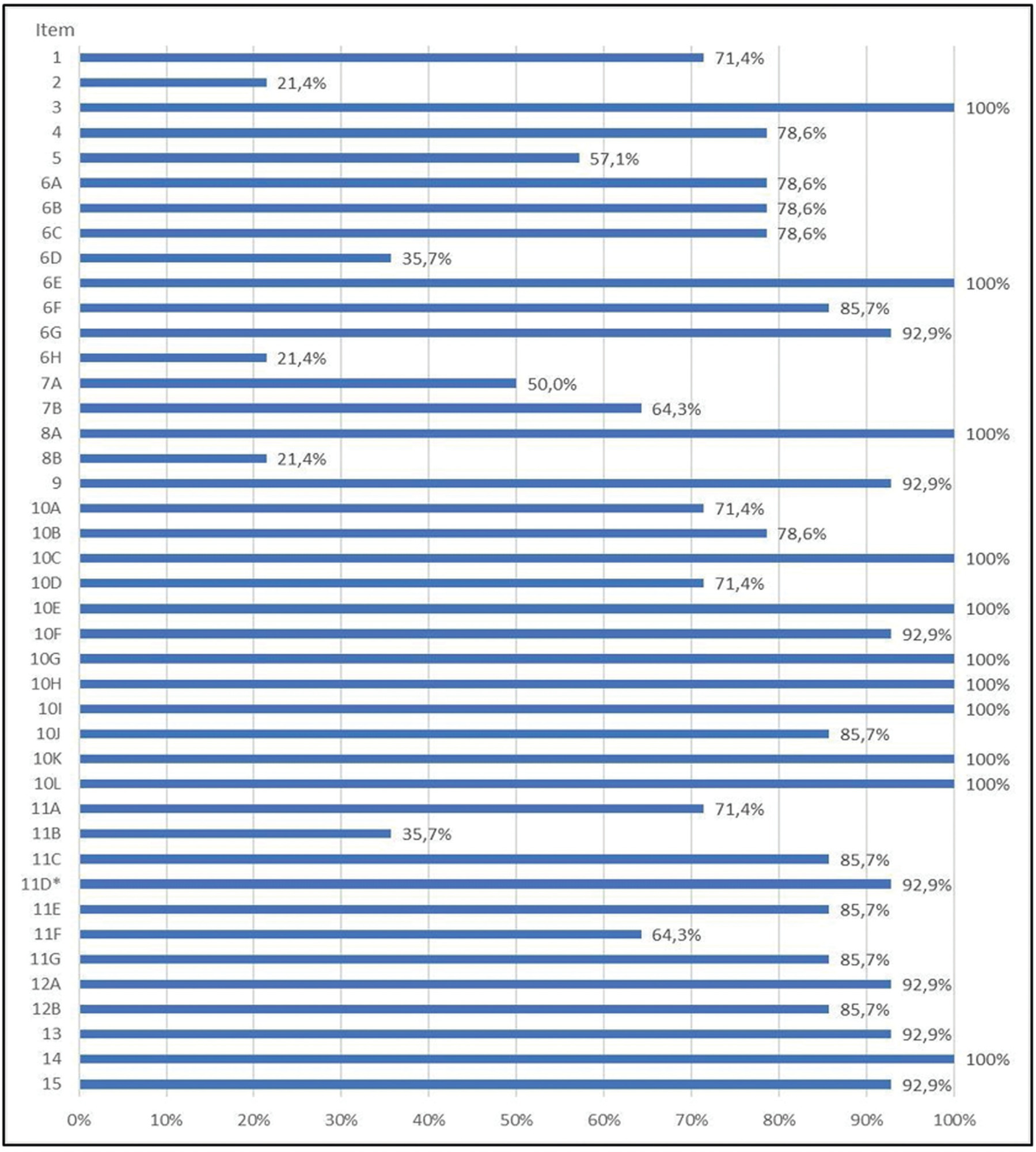-
Original Article12-11-2023
Adaptation and Validation of the International Pelvic Pain Society’s Quality of Life Questionnaire in Portuguese
Revista Brasileira de Ginecologia e Obstetrícia. 2023;45(10):575-583
Abstract
Original ArticleAdaptation and Validation of the International Pelvic Pain Society’s Quality of Life Questionnaire in Portuguese
Revista Brasileira de Ginecologia e Obstetrícia. 2023;45(10):575-583
Views223Abstract
Objective
In the present study, our aim was to translate, adapt, and validate the Pelvic Health History Form (a quality of life [QoL] questionnaire) of the International Pelvic Pain Society (IPPS) from English to Portuguese.
Methods
The study was approved by the Ethics and Research Committee (CEP, in the Portuguese acronym) and the IPPS. The "Transcultural Adaptation" method comprised 5 stages: translation, synthesis, backtranslation, expert review, and pretest. Cultural adaptation and validation included cognitive interviews and statistical analysis of unanswered items (> 15%) in 14 clinic patients from CPP and endometriosis clinic at Santa Casa de São Paulo.
Results
Strong equivalences were established between the USA and Brazil questionnaires in terms of semantics, idioms, experiences, and concepts. Eighteen culturally inappropriate items were identified and adjusted using the revised response rate index. The subjective form underwent rigorous assessments, confirming its accurate measurement of intended targets.
Conclusion
The methodology showed efficiency and equivalence, confirming its validity. The user-friendly format and inclusion of translated, adapted, and validated instruments in Portuguese make the form valuable for evaluating pelvic health, with potential for future research.
Key-words Chronic painPelvic painQuality of lifesurveys and questionnairestranslationvalidation studySee more
-
Original Article02-07-2013
Irritable bowel syndrome in women with chronic pelvic pain in a Northeast Brazilian city
Revista Brasileira de Ginecologia e Obstetrícia. 2013;35(2):84-89
Abstract
Original ArticleIrritable bowel syndrome in women with chronic pelvic pain in a Northeast Brazilian city
Revista Brasileira de Ginecologia e Obstetrícia. 2013;35(2):84-89
DOI 10.1590/S0100-72032013000200008
Views88See morePURPOSES: To determine the prevalence of irritable bowel syndrome (IBS) in women with chronic pelvic pain (CPP) and its associated features; to determine whether IBS and CPP constitute the same syndrome. METHODS: Cross-sectional population survey with systematic sequential sampling according to census districts in which 1470 women were interviewed with respect to the sample calculation. The participants resided in their own homes, were at least 14 years of age, experienced menarche and presented CPP according to the American College of Obstetrics and Gynaecology. The dependent variable was IBS based on Rome III criteria in women with CPP, and the following independent variables were possibly associated with IBS: age, schooling, duration of pain, sedentary lifestyle, migraine, depression, insomnia, back pain, dysmenorrhea, dyspareunia, depression, history of violence, and intestinal symptoms. The sample was subdivided into groups with and without IBS. After the descriptive analysis of the variables was performed, the respective frequencies were evaluated using GraphPad Prism 5 software. To evaluate the association between the dependent variable and the independent variables, the χ² test was used with a significance level of 5%. RESULTS: The prevalence of IBS in women with CPP was 19,5%. Pain duration (p=0.03), back pain (p=0.002), history of physical or sexual abuse (p=0.002), and intestinal complaints were more prevalent in the group with IBS and CPP. There was no difference between the groups regarding other criteria. CONCLUSION: The data confirmed the literature, identified several aspects that were shared between the pathologies and supported the hypothesis that both pathologies can constitute the same syndrome.


